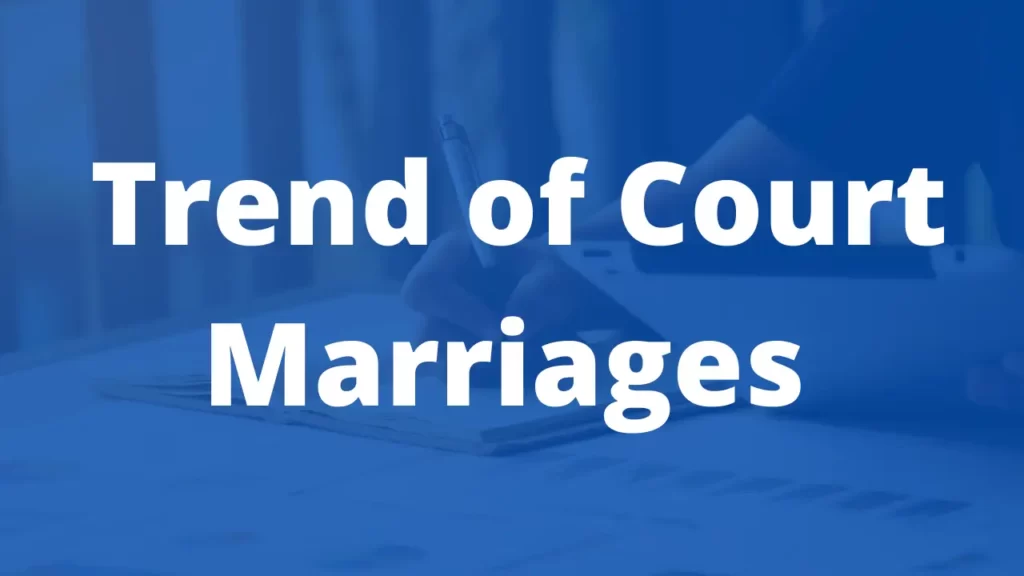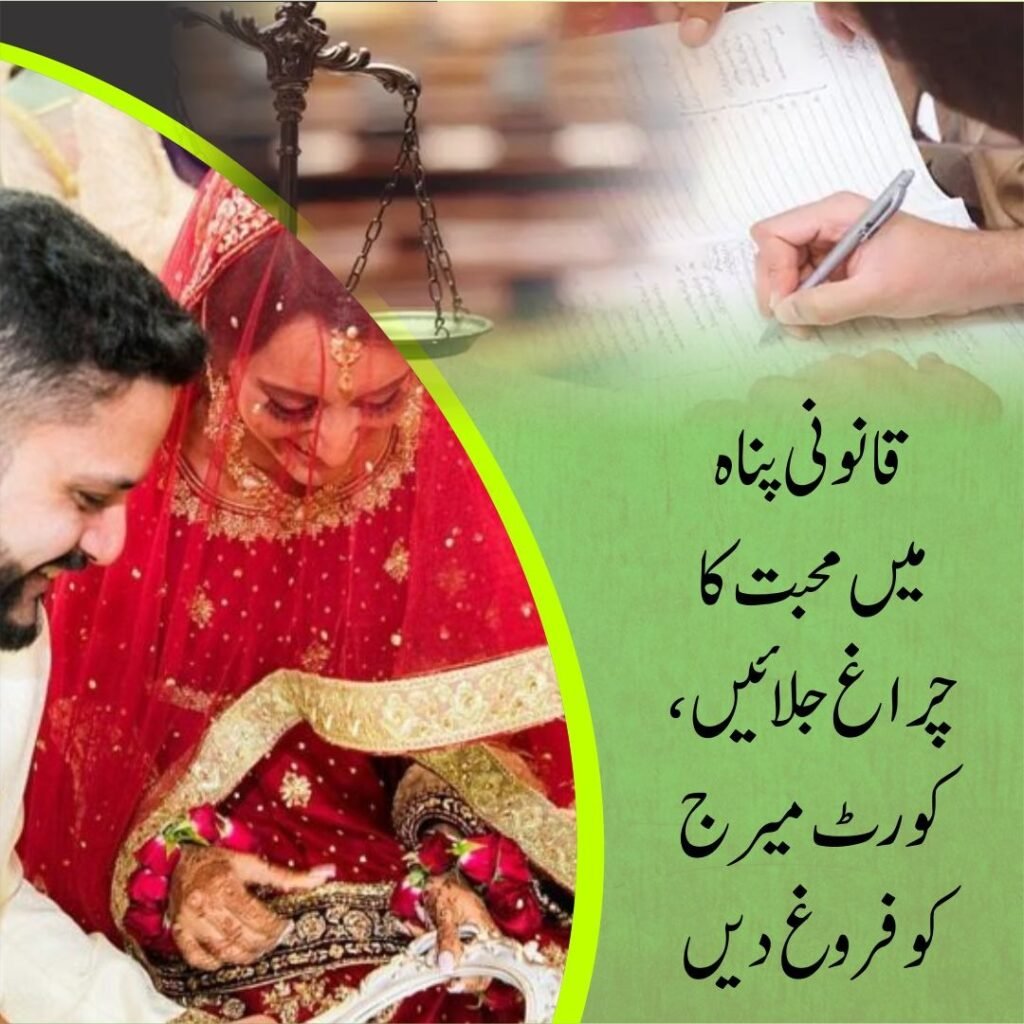Court Marriages | Reasons of Growing Trend of Court Marriages in Pakistan
Court Marriages: Reasons for the Growing Trend of Court Marriages in Pakistan
Court Marriages and reasons of growing trend of court marriages in Pakistan: Marriage trends in Pakistan are changing for many reasons, including lack of money and the influence of Western cultures.
People don’t like to wait for weddings.
People don’t like to wait for their weddings. As the youth are getting married at a younger age, they are unwilling to wait for their wedding ceremony. They want to make their own decisions and take charge of their lives. Even if the court marriage is an option, it is still seen as a last resort because of the social consequences associated with it.
People prefer to make their own decisions about marriage rather than go through all that trouble and expense only because others disapprove of them marrying someone who isn’t from a certain background or religion or caste or ethnicity. The courtship process can be very stressful as well—you have to figure out how to go about asking someone out without being rejected outright! It’s easier said than done!

People don't like to spend a lot of money on weddings.
The traditional wedding costs in Pakistan can be very high. A simple wedding could cost you up to Rs 1 million while a grand wedding would be closer to Rs 10 million. By choosing a court marriage instead of a traditional one, you can save thousands of rupees.
People are afraid of the social consequences.
One reason for the rise in court marriages is fear. People feel that their families or communities may judge them if they get married after dating for a long time, or perhaps even consider the couple to be “loose” in morals. As a result, people are afraid of their families and friends, as well as the social consequences associated with their actions.
There is no uniform law for marriages in Pakistan
The fact that there is no uniform law for marriages in Pakistan means that there are many different forms of marriage. Each form of marriage has its own set of laws and regulations. This means that it becomes very hard to understand what your rights are as a spouse or a partner if you get married under one form and then want to move on to another, or vice versa.
The problem with this lack of uniformity is twofold: firstly, it is difficult for partners or spouses who have married under one form but who want to change their status (by moving from being cohabitating partners into legally married spouses) because the laws do not apply equally across the board; secondly, it makes it difficult for people who have never been legally married before because they cannot find out what their rights are when they get married through common law unions or religious ceremonies only.
People prefer to make their own decisions about marriage
For many people, the traditional practice of arranging marriages is a thing of the past. Today, most young people prefer to make their own decisions about marriage and want to be able to choose their partners. If you look at the statistics, you will see that there has been a huge increase in the number of courtships and weddings over the past few years. This shows us that people are more independent today than they were in yesteryears. They are also more educated and aware of their rights as citizens; therefore, they do not want other people deciding for them what is good or bad for them or what kind of person would make for an ideal spouse.
The trend toward court marriages is gaining popularity because it allows couples who love each other without any interference from parents or family members who may have different ideas about whom they should marry! This option also gives couples complete control over how they want their wedding ceremony performed (i.e., location/theme) while still being able to enjoy all those special traditions associated with this milestone event such as exchanging vows.
Marriage trends in Pakistan are changing for many reasons, including lack of money and the influence of Western cultures.
There are many reasons for the growing trend of court marriages in Pakistan. One reason is that people want to make their own decisions about marriage, rather than following traditional practices. Many couples meet through friends or family members and go on dates before they decide whether they want to get married. This can lead to an engagement that lasts several years, so it’s not uncommon for a couple who started dating when they were teenagers to be engaged for ten years or more before getting married.
Another reason for the rise in court marriages is that many people do not like waiting for weddings and spending lots of money on them. It’s also common practice in some cultures (especially rural ones) for parents or elders to arrange a marriage between two families without consulting either person involved. Court marriages allow people who don’t want this kind of arranged marriage but also don’t have enough money saved up yet—or anyone else who may feel uncomfortable with such arrangements—the opportunity to get married without having any input from anyone else except themselves

We must not forget the importance of marriage and the sanctity of vows.
As you can see, there are many reasons why people in Pakistan are getting married in court. However, we must not forget about the importance of marriage and the sanctity of vows. In the end, it’s up to individuals to decide whether they want a traditional wedding or something more convenient.

